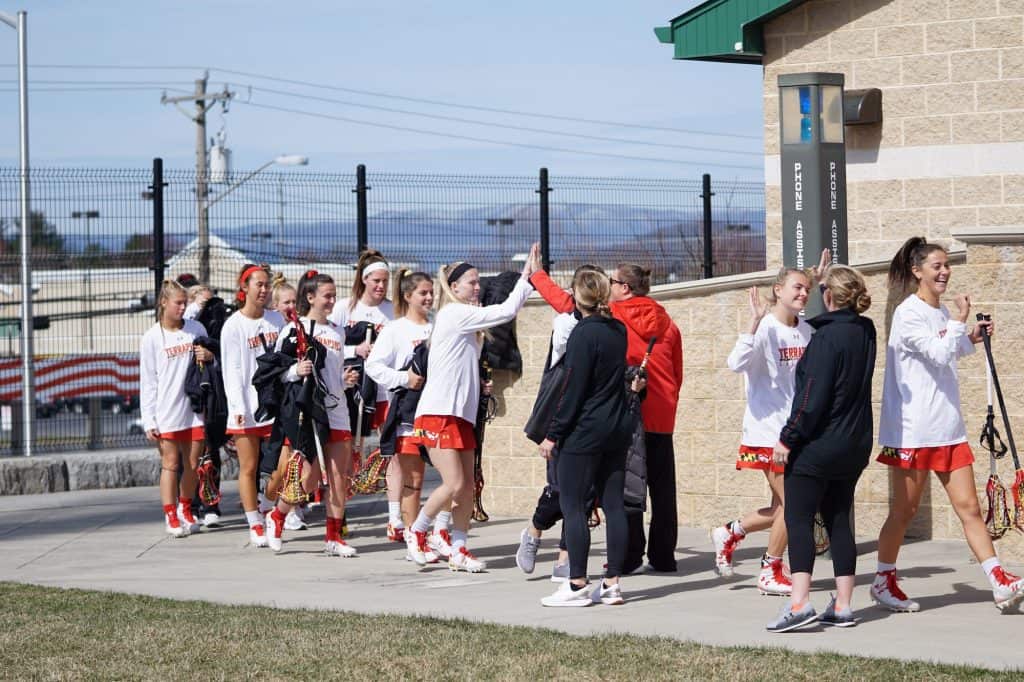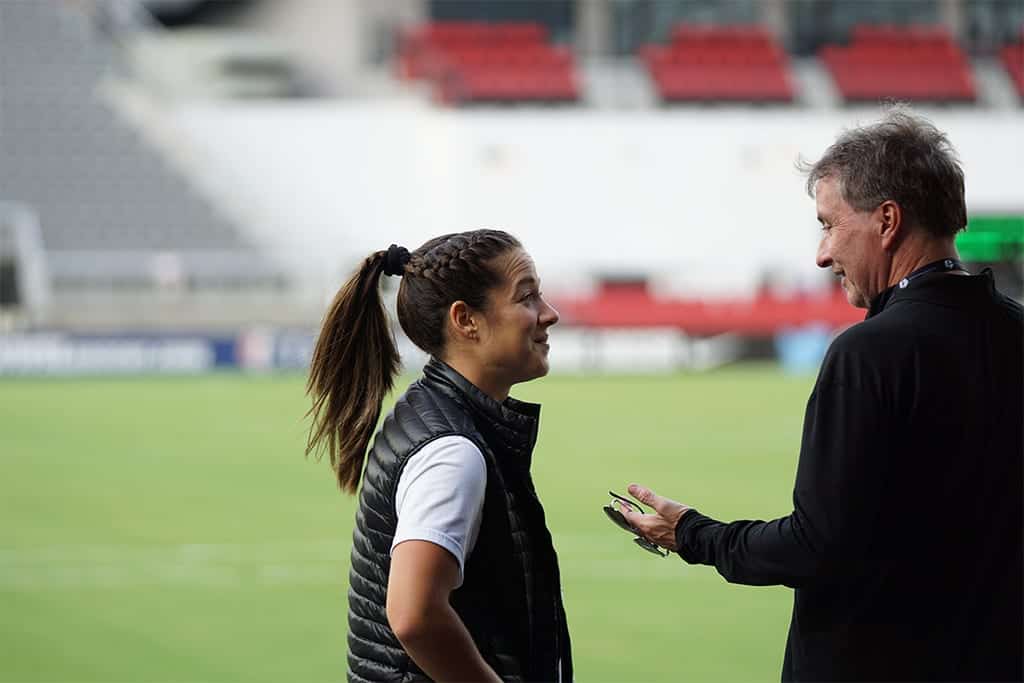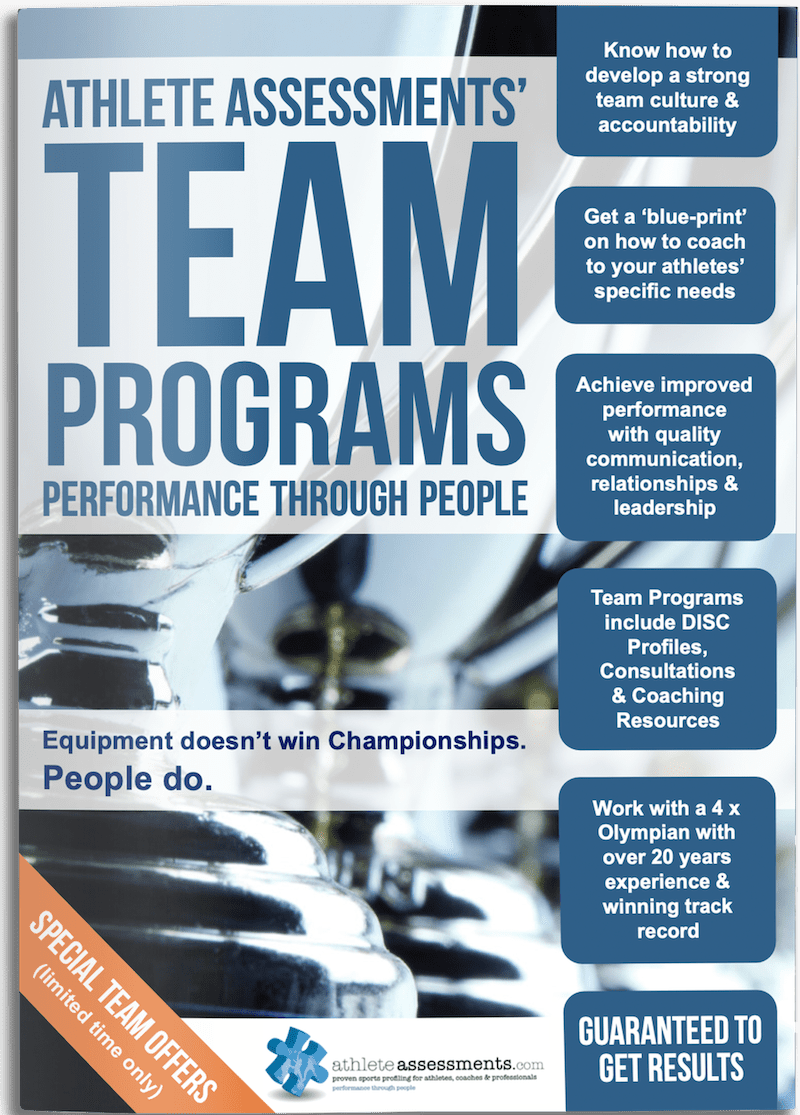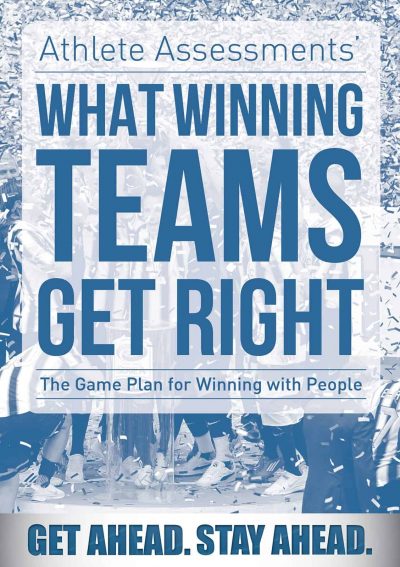“When you get into the head coach chair, you think, wow, I never knew that this is what the head coach did! The intangibles and the relationship side was an eye-opener for me, because largely my head coach handled all the meetings and I wasn't ever brought in to be part of it. Looking back that would have been incredibly valuable.”
Becky Carlson Head Coach of Women's Rugby at Quinnipiac University
So how do you prepare assistant coaches for the next step in their careers?
To unpack the ideas around this important subject, we called on those who have a proven track record of elevating the careers of the coaches around them, and who we are lucky enough to call our clients. We brought them together – not because they liked the topic, not because they’re interested in the topic, but because they are genuine experts in the topic. In a conversation hosted by Bo Hanson, 4x Olympian and Athlete Assessments’ Founder and Director, our expert panel included Becky Carlson, Head Coach of Women’s Rugby at Quinnipiac University; Matt Thurmond, Head Coach of Men’s Golf at Arizona State University; Dr. Nicole M. LaVoi, Director of the Tucker Center at the University of Minnesota; and Tim McLaren, seven-time Olympic Coach in Rowing. The coaches shared details of the way their relationships with their assistant coaches unfold in their own coaching, while collectively, they examined how to facilitate exposure to opportunities and situations to other coaches to broaden their skill base and what they have to offer the athletes and sports professionals around them.
What we found most invaluable about this conversation is the way the coaches shared their real-life experiences, providing raw, firsthand accounts of their coaching careers and journeys. (If you would like to dive into the background of the coaches further, we invite you to read their bios included at the end of this article.)
Getting the conversation started, Bo asked each coach to reflect on their own transition in to being a head coach – we especially wanted them to focus on whether they were supported to become a head coach?
We were excited to hear Nicole LaVoi’s insight first up as she is the premier researcher on the topic of women and girls in sport – if there is an informed conversation about women and girls in sport taking place anywhere in the world, I’d be surprised if her name wasn’t mentioned. She is also a Director of the Tucker Centre within the University of Minnesota which evaluate, monitor, and advise on strategies to increase and improve participation and performance for women and girls in sport. What we always love about Nicole’s contribution is that she was a collegiate tennis coach herself, she advocates for coaches, and she teaches at coaches academies, she’s not a desk bound academic, but a dynamic advocate for women coaches who brings firsthand experience and robust research to this conversation. (And, just quietly, we love myth busting with the right numbers when it comes to women coaches.)
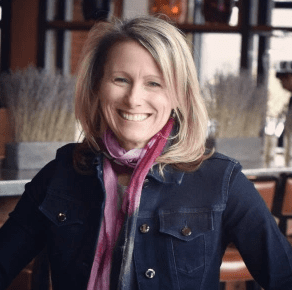
NICOLE LAVOI:
I went from assistant to head coach. I got my first head coaching position at age 23, so I made the transition pretty quick. From two years as an assistant up to head coach at the collegiate level. I got zero help and zero mentoring, to make that leap. But I always knew I wanted to make that leap to head coach, because I wanted to affect the lives of female athletes in a positive way. So, I went from the head coach position into the academic world to do that on the backside of the coach developer, educational track.
Bo: When you made that transition to being a head coach, were you expecting any support? Did you think that there would be some sort of assistance to becoming a head coach because it’s a very different role.
NICOLE:
You know, I was so young at the time that I thought I pretty much knew everything I needed to know to be a head coach. So I guess I wasn’t expecting any mentoring, but I learned in about 24 hours once I arrived in my head coach position that I definitely needed some mentorship.
As the phenomenal Head Coach steering the Men’s Golf Program at Arizona State University, Matt Thurmond has a life shaping impact on his athletes and his coaching team. To date, five of his assistant coaches have become head coaches of Division I programs, and we are super excited to share his wisdom on this topic.
MATT THURMOND:
I was finishing up my senior year as a student-athlete and my coach came to me and said, “Hey, I think you’d be good at coaching. Why don’t you stick around and be my assistant next year?” I was transitioning a lot of things in my life and said, “Hey, you know, that sounds like something reliable that I would love to do.” So, I really enjoyed it. And then a year later I got another, assistant coaching job for the men’s and women’s teams at the University of Washington.
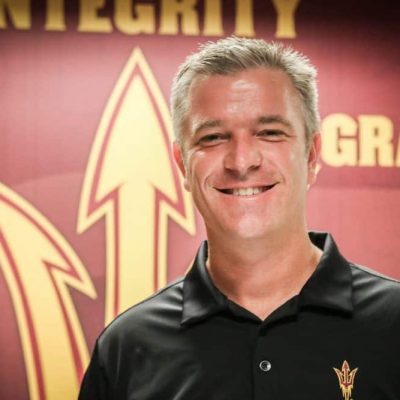
And actually, it was just a year later, where the Men’s Head Coach left and he really mentored me in so many ways, he set me up to get the head coaching job. He was a well-thought of coach, and he went to the administration and said, “Hey, you got to hire this guy. This is who needs to replace me.”
That made all the difference in the world. I was too young to be hired for the job, but they hired me anyway on his recommendation. And even after I got the job, I talked to him daily for years about everything going on in the program. So, I’m kind of the opposite to Nicole, I had amazing support and it made all the difference.
Speaking of success and advocates for their assistants, we’re so excited to share insights developed during a truly unique career from Becky Carlson, Head Coach of Women’s Rugby at Quinnipiac University. Becky led her team as head coach to three National Championships, after having started the program from scratch, and she has had many assistants progress on to become head coaches themselves. You may know Becky as the ‘Fearless Coach’, and she brings a unique perspective along with over a decade of experience as a head coach.
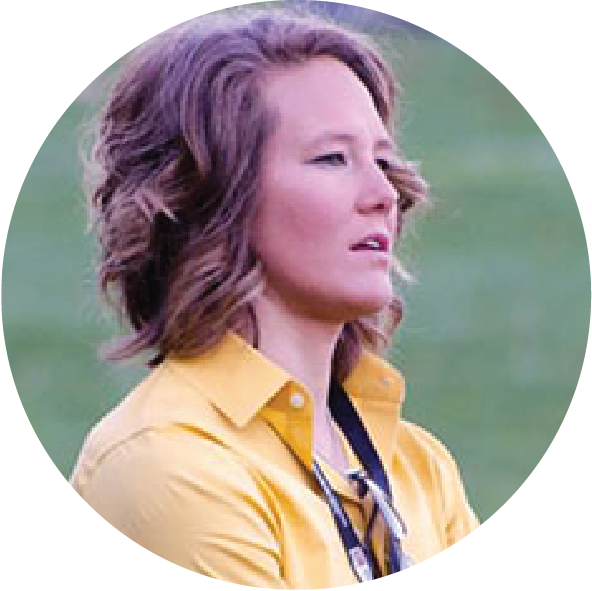
BECKY CARLSON:
My track might be a little different from most, rugby at the NCAA level is still largely in its infancy. So, I was a dual sport NCAA athlete in tennis and rugby at Eastern Illinois University. I went from being an athlete to a graduate assistant to assistant coach. And then I finished up my graduate degree, had a four-year break in between working for an NGB and then through the relationships I’d built during the NGB, I got on the radar at Quinnipiac as a candidate for their NCAA Rugby Coach position.
So, before that I had a stint at a small Division III school. I did lacrosse, soccer, did some tennis, hit fly balls to the outfield, did all kinds of stuff at the Division III level, which I love, and that was as an assistant coach. I’m 40 now, and I look back now and think of myself as a 28 year old who took the head coaching position at Quinnipiac.
It was so drastically different from my previous position as an assistant at my alma mater. So this is why this topic is so important to me, it jumped out to me because I just remember kind of being thrown into the head coach role and not really having a mentor in that way. It was always kind of planned that I would become a head coach, but my head coach would qualify his belief in me with – “you’re going to have to actually go out and create programs in order for you to be able to get a job”. And that’s what I did. So that’s why this topic is really important to me.
Then Bo introduced Tim McLaren, seven-time Olympic coach in rowing and Bo’s own coach for his three medal winning Olympic campaigns. Tim has been a long time Head Coach at the University of Technology Sydney, in addition to coaching countless Australian teams at the national, international and Olympic level. Since 2012 Tim has been an integral part of Team USA at the Olympic level, coaching the Men’s Four at the Tokyo 2020/21.
TIM MCLAREN:
I started off coaching as a volunteer, I was 20 years old and my coach at the time said, “Hey, you’re going to do a teaching degree, would you come out and help the under nines?“ So it started off at a pretty basic level, but one of the advantages of starting out with beginners is that you can make mistakes, it’s basically managing the kids and that’s still the case, 40 odd years later. So, I think volunteering, getting people that really love it, love the game is great starting point.
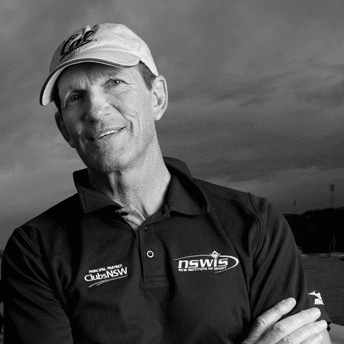
Particularly in Australia, a lot of coaches start off volunteering and I think that’s the missing piece in a lot of educational coaching units. People are doing the study, but they are not doing the practice. As we know, you can be an observer, but you have to bring energy, you have to be a bit of a fanatic of the game.
So, when people ask me, how I select assistant coaches, the answer is that they often present themselves. Matt and Becky, your coaches selected you, you must have brought some qualities even though there is a lot of serendipity involved in coaching roles.
Bo: Are you specifically looking for a future head coach? Do you want your assistant coaches to hang around for a long time? What qualities are you looking for in your assistant, especially if you are trying to develop future head coaches? (asking all coaches)
MATT:
I think coaching is coaching and maybe it’s different in my sport, but I actually try to have our assistant coach feel like a head coach and give him head coaching responsibilities and maybe blur the lines a little bit. I’m not real hierarchical in how I like to do things.
Bo: Do you tell them that when they first join? Do you say, “You're coming on as the assistant coach, but from day one, you can expect to be doing these types of things.” Is that part of the conversation?
MATT:
I think if someone asked what it’s like to work for me, most guys would say, “It was a lot of fun, but you had to work really hard, because he’s going to put a lot on your plate”. So, yes definitely I tell them, “I’m going to give you more responsibility than you’ve ever had.” And they want that, and they like that, generally people that want to be head coaches are attracted to that. Their role ends up being very much like mine, I give them administrative responsibilities, make them make offers, make them cut players, we share it, and I think that’s the best thing I can do to help them prepare. If they don’t want to be a head coach then that time can come, but I certainly want to make sure that they have the ability to do so, if they do want to.
Bo: So while you're not 100% responsible, as none of us are, for helping someone or developing them into a head coach, what are your expectations on how long it should take someone?
MATT:
Generally, in golf, if things go well, three to five years. It might not be the perfect job, but it will be a step. I think of John Reehoorn, who left our program, became the Head Coach at Idaho and then became the Head Coach at Oregon State after that, and Garrett Clegg, went to Washington State and then to the University of Utah, both of them kind of had a multi-step process.
I think our coaches are probably kind of sick of me after three or four years anyway, and ready to move on, It’s good for me to see them move on.
Bo: Becky, what are your thoughts around that? Are you specifically looking for future head coaches or are you looking for someone who's going to fulfill the assistant role extraordinarily well, and then maybe if they choose to develop into a head coach?
BECKY:
Again, I think it’s an interesting question and I might be in a little bit of a different boat since we’re literally building the sport. In 11 years I’ve had three assistants, and a total of seven alumni with our program, that have been either athletes or coaches who have gone on to coach at the NCAA level with brand new programs. One of them is a high school coach and one just made it into athletic administration. So, I think it’s a little bit of a different animal for me. But, our job in this sport and we need to scale good coaches and we need to do it quickly to cover upcoming programs as we expand. So, the goal is to turn coaches out and send them away, and I think that comes with a bit of a grieving process. You talk about holding on to coaches that are really good at what they do and kind of wanting to be selfish in that way and I’ve had to do it several times!
I know there’s many coaches out there who know what I mean, who have developed that rhythm in their coaching team and know that feeling when you’re on beat with your assistant coach and they know who to call when the team bus is late without even asking, or, they finish your sentence about a training outline or a perspective on a recruit.
It’s pretty magical when that happens and it makes it pretty devastating to lose them, but I think I’ve become accustomed to just reframing what my role is in the game and the way I think about my staff is more that we manufacture and spread solid leadership over the sport so coaches can build something on their own that has a potential. What they build has to be sustainable, memorable, and successful.
NICOLE:
Can I just jump in with a data point? When you ask a room full of coaches, similar to Matt and Becky and say, ”How did you get into coaching? Raise your hand. Did someone ask you or say, “Hey, have you ever thought about coaching?” I would say two thirds of the room will just raise their hand.
So that is a really important action item for everyone reading. If we want to get more people into our sport, grow our sport, grow leaders, we have to ask people to be engaged.
Bo: Not every head coach is able to help assistant coaches become head coaches. Becky also made a really valuable point commenting on the bigger philosophy that we’re here to develop the game and we can contribute more if we can do more, if we can develop great leaders. The idea really encourages us to ask the question whether we are here to just coach athletes or are we here to coach coaches as well, so should it be part of a head coach's role to develop future head coaches?
NICOLE:
I would say absolutely, yes, because whether you’re explicitly doing it or not, you’re still developing them. So you might as well do it explicitly.
MATT:
Absolutely. When I started, I thought it was all about the student-athletes and that I was going to spend most of my time coaching them. The relationship and connection with your assistant coaches been one of the great surprises and joys of my coaching career, you get so close with them, every day working on things from dawn to dusk. So there’s an intimacy that’s created there. We have a fraternity, we bounce ideas off each other and every day we’re trying to make each other better. And even now, these are my best friends and a week doesn’t go by that I don’t talk with them. And they know me and I know them, it’s a beautiful thing. And I think the sport gets better if we all get better.
We’re all motivated by different things for me, impact and making a difference is everything so helping others coaches get better so that they can make a larger impact, is what it’s all about. So, absolutely.
BECKY:
Of course, I would say yes. I also know that in our sport people are often starving for resources, part time assistants who leave in 1 year. There is a big turnover and developing them is a difficult thing. I hear it in men’s sports too but definitely in women’s sports. If you’ve taken on an assistant coach – it’s definitely on you! The process needs to be transparent and it needs to be open. We need to respect the next steps our people take.
Bo: What would be some key strategies that you would use yourself to help develop the skills in an assistant coach to prepare them for being a head coach?
BECKY:
I’ll go back to my own experience. When I was an assistant, I always had a bit of a one-dimensional view of what the responsibilities were of my head coach. He tended to, sequester the really big stuff into one space and then gave me more of an administrative workload and less hands-on work. From an assistant coach’s point of view you’re across the technical and logistical but that transition really opens up to the second and third dimension. When you get into the head coach chair, you think, wow, I never knew that this is what the head coach did! The intangibles and the relationship side was an eye-opener for me, because largely my head coach handled all the meetings and I wasn’t ever brought in to be part of it. Looking back that would have been incredibly valuable.
I think having your assistant there both from a learning and legal standpoint when it comes to player issues, is really important and healthy habit. And, you know, unless the player asked to speak to you just privately, I think it’s a learning experience for the assistant coach so they can see the good, the not so good, and you know!
Bo: Does the head coach role demand say more or less technical knowledge, what's the main challenge in becoming a head coach in terms of the issues that you're going to have to deal with?
TIM:
Coaches always start off with responsibilities on the technical side and the interpersonal management side. And, you don’t give them more responsibility than they need to kick off. You’re learning as much about them on the job as they are about you.
So hopefully you set a good example and provide a little bit of encouragement and understanding. You need to clarify the role and, in my case, the assistants do a large amount of the mechanics involved in running the club.
At the club we cater for people trying to make the Olympics as well as people from the university who might not be star athletes. But we try and manage them all, give them some time, give them some attention and help develop them personally so that everyone gets a good experience from the sport.
At the end of the day, everyone’s looking for the best, but words like excellence, elite, and high-performance are used too commonly. But, there’s a lot of personal development opportunities when people are in those influential years from 18 to 22.
Bo: Nicole I want throw the conversation over to you so you can tell us about the research that you've done into understanding women's involvement in sport, pioneering and promoting it, and the importance of doing that. Women need support, men need support too, the needs are a little different. Can you give us an insight into some of the challenges facing females going from being an assistant coach to a head coach? And what are the key ways that we can help support them to do that because it's absolutely critical from many different perspectives.
NICOLE:
So, first of all, I think it’s important to recognize that women wanting to get into, stay into and be retained in sport coaching, women face many, many more barriers than men do. Women can work as hard, have the knowledge, have the experience, but they’re often just not given the opportunity. I have a very complicated barriers model of all different levels from the societal to the organization, and interpersonal barriers that women coaches face.
The other thing to know is that in women’s athletics, 100% of the athletes are women and in the US by the time we get to graduate assistants, 78% of them women. When we get to the assistant coach position, 52% are women and 43% of head coaches are women. Now think of that on the men’s side, 100% of the athletes are men, almost 100% of graduate assistants are men. Nearly 100% of assistant coaches are men and 98% of head coaches are men. So it’s a very different landscape for women.
And this is the reason why I say we need to value and support women, in addition to what we do for men and give them opportunity.
So one of the things we know with our data is about the funnel from athlete to head coach; the greater the position of power, the visibility and the pay, the fewer women we have, and we know there’s a critical zone of attrition between ages 28 and 33 when assistant coach women either drop out of coaching or make the move to a head coach.
So when we’re thinking of support for women, that critical zone of attrition is age 28 to 33. I was one of those coaches that dropped out. I stopped coaching at age 29. Now it’s not because I didn’t want to, I went into the academic pathway, but I think we need to know that. How we support women in that zone is really important.
One of the most important strategies for supporting women is to give them the opportunity. And when we assume we’re looking for the best fit, we have to understand that the best is layered in gender bias. So when we think about the best that already privileges male candidates, and that’s a whole other discussion.
- Firstly, give them opportunity,
- Proactively recruit them, have a succession plan. When you’re out on the course, or the ice, or the field, and the water, and you see women that are the coach’s coach, the players’ coach, invite them in.
- I would say use your position of power to actively sponsor them into coaching and upward into a head coach. If that’s what they want.
Sponsorship is not allyship, that’s not mentorship. Sponsorship is that I have power and I will network you, connect you, talk you up, give you everything you need to make that next job. So those would be my quick three high-impact strategies.
Bo: If you're not getting the support you need in your current head coach - we would say to an athlete, you have to have your own goals and go and find ways to reach them, find your own mentors and you can contact us, we can put you in touch with a lot of different people.
MATT:
Maybe it’s a golf thing, but I think people generally want to help everybody else. And we see a lot of assistant coaches connecting with other head coaches who play that same role for them, even if the place where they currently are doesn’t provide it for them. So that’s probably what I would recommend, within the broader coaching group, find people that are mentors that you can ask questions to, or just share some ideas with, or get some advice from. I think you always find people are happy to do that head coach role. Even if they’re in your school but in another program they could be really helpful.
TIM:
To give you an example of the kind of advice and help that people need early in their coaching career – we have a few part-time assistants and former national team people, and I stress to them – they’re a great athlete. They have good presence, but in the coaching game, they’ve got to ask questions because it’s all about questions, basically coaching boils down to – what can I see? And, what am I going to say? So you have to process the scene – there’s a lot of activity, whether in golf, like analyzing a swing or the rugby game patterns, and then, what you’re going to say, how much is enough? Where do you start? What’s a good place to start?
You have to give them some guidance and tips, but, likewise you’ve got to be on them about, asking more questions. You’ve got to be a bit more involved. Even though a lot of old school coaches will say that their assistants ‘just pick things up’ they need a little more guidance. I think encouraging questions and facilitating discussions – what have you learnt? What do you need to know better? They’re helpful discussions.
BECKY:
Particularly with younger assistant coaches who might be in their 20s or early 30s we are experiencing a bit of an epidemic in that they are not able to deal with tough conversations face-to-face. As a society we are really entrenched in texting, emailing rather than having open conversations.
Engagement and involvement are a challenge in themselves. We all know that we’ve had that really fantastic pregame speech and you get the players staring at you like owls. Compare that to professors who are trying to get their students engaged and the classroom is absolutely silent. That happens a lot with this generation. We are trying to get both our athletes and our assistant coaches to advocate for themselves and say simple things like, “hey I need more help”. I’m coming from the standpoint that they have experienced so few forums where this kind of comment is welcomed.
It’s even a challenge to verbalize what they need, to say “Hey I don’t feel like I’m developing”. We are working on the same things with our athletes and assistant coaches, we want them both to feel open and be able to share in the team forum. We have had situations where the coach is left out of correspondence because the players don’t consider the coach as part of the team.
If you are not getting the support that you want from your head coach, it’s up to your interpretation why you are not getting that.
There has to be some initiative there for you to say, “Hey, I’d really like to improve on this portion of my coaching. Could you help me?” Be very specific with it rather than just assuming that they’re not helping you because they don’t want you to advance.
NICOLE:
We wanted to understand more about the hiring of women coaches, so we interviewed both men and women head coaches. Out of 20 coaches only five explicitly said, “I want to hire women”. It was part of their core philosophy.
The other ones were sort of ambivalent. Like it was contextual and situational, saying it’s great if it works out and it is really about what I need. We would say that some coaches were benevolent sexist. They say things like – we like having women coaches because they’re great role models, they communicate better with the young women on the team and they’re more rational. That kind of thinking doesn’t help female assistants advance because we’re pigeonholing them into doing all the emotional labor, which leads them to not get elevated to head coaching, because they’re not doing all the roles. If we’re only giving assistance for them to do some roles that doesn’t help them grow and it might also burn them out and they’ll quit.
MEET THE COACHES
Becky Carlson
Becky Carlson
Nicole M. LaVoi, Ph.D.
Nicole M. LaVoi, Ph.D.
Tim McLaren
Tim McLaren
Matt Thurmond
Matt Thurmond
Where to from here?
This conversation is just an excerpt of the in-depth, informative, and enlightening conversation Bo had with the coaches in our Webinar on ‘Coaches who Lift Coaches’. If you enjoyed this, we highly recommend watching back the recording of the session where the coaches provide even more insights into their roles as head coaches and the important of providing opportunities for the development of your assistant coaches. If you would like to learn more, access the webinar recording here.
Recommended Articles
A panel of expert head coach developers joined us for a recent webinar, in this article we debrief their discussions on why proactivity, self-awareness, and understanding coaching needs, are the key to progressing in your coaching career.
In any industry, recruiting the right person to join your team is a challenging task, but when done right can be extremely rewarding. We spoke to a panel of head coaches who are experts in recruiting assistant coaches for their own programs. Think of this as the how-to for recruiting the right assistant coach, the effects it has on team culture, and why it’s part of a head coach’s role to get it right.
If you’re familiar with us at Athlete Assessments, you might know we’re big believers in gender equality and are passionate about equal rights, equal pay, equal opportunity, and equal recognition, not only just for female athletes, but for women in general.


